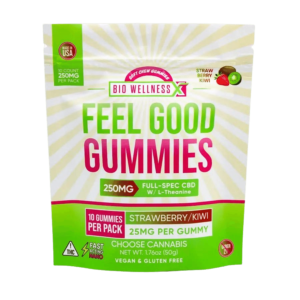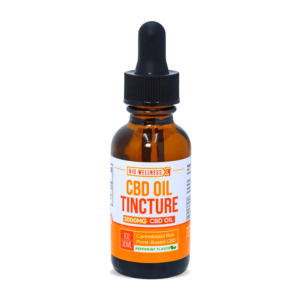key points
Let’s be real, nobody warns you about the real postpartum period. Sure, everyone mentions the sleepless nights and the hormonal changes, but the complete emotional rollercoaster? The anxiety that hits you at 3 AM when you’re checking if your baby is still breathing for the tenth time? The chronic physical discomfort that makes you wonder if your body will ever feel like yours again? Knowing it’s coming and actually living it are two very different things.
If you’re a new mom struggling right now, take a deep breath. You’re not alone, and you’re not broken. What you’re experiencing is incredibly common, and there are natural alternatives that might help you find your footing again.
Understanding Postpartum Depression and Anxiety (Because Knowledge Is Power)
Here’s something that might surprise you: understanding postpartum depression starts with knowing it’s not just “baby blues.” While up to 80% of new mothers experience some mood swings in those first few weeks after giving birth, postpartum depression and postpartum anxiety are clinical conditions that deserve serious attention.
Depression symptoms can include persistent sadness, difficulty bonding with your baby, and even suicidal thoughts. Postpartum anxiety often shows up as severe anxiety, constant worry about your baby’s health, and sometimes even panic attacks. Some moms experience social anxiety disorder for the first time in their lives, finding it suddenly overwhelming to attend parent groups or even answer the door.
The thing is, your mental health matters just as much as your baby’s. Research suggests that untreated mood disorders during the postpartum period can affect not just you, but your entire family’s well being.
Why Your Body Feels Like a Stranger
After giving birth, your body is basically running on a completely rewired system. Your nervous system is in overdrive, your circadian rhythm is shattered (thanks, 2 AM feedings), and your endocannabinoid system—which helps regulate everything from mood to sleep regulation to reducing inflammation—might be working overtime trying to restore balance.
Add in poor sleep, discomfort from delivery, and the pressure to be the “perfect” mom, and it’s no wonder so many mothers feel like they’re drowning.
Enter CBD for Moms: What the Science Actually Says
Okay, so you’ve probably heard people talking about CBD. Maybe your yoga teacher mentioned it, or you saw it in a wellness blog. But what does research suggests about CBD for postpartum health?
CBD (cannabidiol) is a compound from the cannabis plant that works with your body’s endocannabinoid system. Unlike THC (the psychoactive compound in marijuana), CBD doesn’t get you high—it has no psychoactive effects. Instead, clinical studies suggest CBD products like CBD gummies may help with anxiety relief, reducing stress, and promoting better sleep.
Here’s what we know from clinical trials and research:
CBD may help with anxiety and stress. Multiple studies have shown that CBD interacts with serotonin receptors in your brain, potentially helping to reduce anxiety and promote a positive mood. For moms dealing with postpartum anxiety, this could mean fewer panic attacks and a calmer nervous system.
CBD might improve sleep quality. If you’re tired of poor sleep on top of your baby’s sleep schedule, CBD may help regulate your natural sleep patterns. Better sleep isn’t just about feeling less tired—it’s crucial for your immune system, mental health, and overall wellness.
CBD has anti-inflammatory properties. Whether you’re dealing with postpartum discomfort, sore muscles from carrying your growing baby, or just general inflammation, CBD oils and topicals might offer some relief by reducing inflammation naturally.
Research published in the International Journal of various medical fields continues to explore CBD’s potential benefits, though we definitely need further research to fully understand its effects during the postpartum period.
The Big Question: Is CBD Safe for Breastfeeding Mothers?
Let’s address the elephant in the room: safety concerns. If you’re a breastfeeding mother, you’re right to be cautious about what you put in your body. Healthcare providers emphasize that anything you consume can potentially transfer to breast milk and reach your baby.
Here’s the honest truth: we need more clinical research on CBD use during breastfeeding. Current studies haven’t definitively shown whether CBD is safe for human milk or if it poses risks to a developing fetus or nursing infant. Some concerns include potential effects on poor cognitive function, low birth weight (when used during pregnancy), or impacts on your baby’s developing nervous system.
This is absolutely a conversation you need to have with your healthcare provider. A good doctor won’t judge you for asking—they’ll help you weigh the potential benefits against any safety concerns specific to your situation.
If you do get the green light to try CBD, look for products that:
- Have been third-party tested
- Contain minimal to no THC (THC found in products can stay in your system for up to six days)
- Come from reputable sources that use clean, quality ingredients
- Clearly list all ingredients and CBD content
BioWellnessX: A Different Approach to CBD Products
When it comes to choosing CBD products, quality matters—especially for new mothers who need to be extra careful. Companies like BioWellnessX have built their philosophy around transparency and purity, which is exactly what postpartum moms need.
What sets thoughtful CBD brands apart is their commitment to full spectrum formulations that preserve beneficial compounds from the cannabis plant while keeping THC levels practically nonexistent. For moms exploring CBD for anxiety or sleep problems, this approach means getting the potential therapeutic benefits without the worry about psychoactive effects.
The best CBD product for you might be a small dose of CBD oil taken sublingually (under the tongue) for quick absorption, or you might prefer topical applications for localized physical discomfort. Many mothers report positive effects from starting with a low dose and adjusting from there, always under healthcare provider guidance.
Recommended products
-
Feel Good Gummies – Full Spectrum CBD + L-Theanine
$24.97In stock
-
Full Spectrum CBD Gummies Bundle
Original price was: $102.93.$92.63Current price is: $92.63.In stock
-
Pure CBD Oil Tincture
Price range: $29.99 through $169.99In stock
-
Mellow Drops – CBD + THC – 25mg Per Gummy
$47.99In stock
Beyond CBD: Other Natural Alternatives for Postpartum Wellness
CBD may be getting a lot of buzz, but it’s just one tool in your self care toolkit. Here are other evidence-based approaches for reducing anxiety and supporting your mental health:
Prioritize sleep (yes, really). Even though sleepless nights are part of the gig, protecting your sleep when you can is crucial. Sleep regulation affects everything from your mood to your immune system. Take turns with your partner, accept help from family, or consider hiring a postpartum doula for overnight support.
Move your body gently. Light exercise can help regulate your circadian rhythm, reduce stress, and ease depression symptoms. This doesn’t mean training for a marathon—a walk around the block counts.
Connect with other moms. Isolation makes everything harder. Whether it’s online support groups or local mom groups, finding community combats that social anxiety disorder and reminds you that you’re not alone in this.
Consider therapy. Cognitive behavioral therapy has strong evidence for treating postpartum depression and anxiety disorders. Sometimes talking through things with a professional makes all the difference.
Eat real food. Your body needs nutrients to heal, produce breast milk (if breastfeeding), and support your immune system. This isn’t about restriction—it’s about nourishment.
When Cannabis-Derived Products Might Not Be Enough
Here’s something important: if you’re experiencing severe anxiety, suicidal thoughts, or depression symptoms that make it hard to function or care for your baby, CBD alone probably isn’t the answer. There’s no shame in needing traditional medication or more intensive treatment.
Cannabis use or CBD use should be seen as potential complementary approaches, not replacements for proven treatments. Healthcare providers can help you create a comprehensive plan that might include medication, therapy, lifestyle changes, and potentially CBD—if appropriate for your situation.
The Permanente Journal and other medical publications continue to emphasize that postpartum mood disorders are serious conditions requiring proper medical attention. Getting help isn’t a sign of weakness; it’s smart parenting.
What the Anecdotal Reports Tell Us
While we wait for more clinical studies, anecdotal reports from mothers who’ve tried CBD are worth noting. Many mothers describe:
- Feeling less “on edge” throughout the day
- Experiencing fewer anxiety-related sleep problems
- Finding it easier to cope with the stress of new parenthood
- Noticing a positive effect on their overall mood
- Managing physical discomfort more effectively
Of course, everyone’s experience is different. What works beautifully for one mom might not work for another. The increased risk of disappointment is real if you go in expecting miracles. CBD may help, but it’s not magic—it’s one piece of a larger wellness puzzle.
Creating Your Postpartum Wellness Plan
So where do you start? Here’s a realistic approach:
Step 1: Talk to your healthcare provider. Before trying CBD or any natural alternatives, get professional input. Be honest about your depression symptoms, anxiety levels, and what you’re hoping to achieve.
Step 2: Start small. If you get the okay to try CBD, begin with a low dose. For many moms, this might be 5-10mg once or twice daily. You can always adjust up, but you can’t untake what you’ve already consumed.
Step 3: Track how you feel. Keep a simple journal noting your mood, sleep quality, anxiety levels, and any physical symptoms. This helps you see patterns and gives you concrete information to share with healthcare providers.
Step 4: Give it time. CBD may take a few weeks to show its full potential benefits. Don’t give up after three days if you’re not feeling dramatically different.
Step 5: Stay connected to support. Whether that’s your doctor, a therapist, a mom’s group, or your partner, don’t try to navigate this alone.
The Bottom Line on CBD and Postpartum Health
The research on CBD for postpartum depression and anxiety is still evolving. We need further research, more clinical trials, and better understanding of long-term effects. But for some mothers, CBD products—used responsibly and under medical guidance—may offer a natural way to take the edge off anxiety, improve sleep quality, and support overall wellness during one of life’s most challenging transitions.
If you’re exploring CBD, choose quality over convenience. Brands that prioritize purity, transparency, and education (like the approach you’ll find at BioWellnessX) make it easier for new mothers to feel confident in what they’re using. Look for companies that provide third-party lab testing, clearly disclose all ingredients, and offer resources to help you use their CBD oils or other products safely.
Remember: being a new mom is hard enough without suffering in silence. Whether you find relief through CBD, therapy, medication, meditation, or (most likely) some combination of approaches, what matters is that you’re taking care of yourself. Your baby needs a lot of things, but most of all, they need you—healthy, supported, and as balanced as possible.

Legal Disclaimer:
By reading this information presented, you agree to release the author of any liability that comes from using this data. This post contains no legal advice. Claims about cannabinoids have not yet been approved by the FDA. Read the full legal disclaimer here.
References
- Bonn-Miller, M. O., et al. (2021). JAMA Network Open.
- Blessing, E. M., et al. (2019). The Lancet Psychiatry.
- Mücke, M., et al. (2023). Cochrane Database of Systematic Reviews.
- Pertwee, R. G. (2008). British Journal of Pharmacology.
- Englund, A., et al. (2013). Neuropsychopharmacology.
- Laprairie, R. B., et al. (2015). Journal of Biological Chemistry.
- Gurley, B. J., et al. (2022). Journal of Dietary Supplements.
- Devinsky, O., et al. (2017). New England Journal of Medicine.
- Bergamaschi, M. M., et al. (2011). Neuropsychopharmacology.
- Hurd, Y. L., et al. (2019). American Journal of Psychiatry.
FAQs About CBD
CBD modulates the ECS by blocking FAAH, boosting anandamide levels, and subtly altering CB1/CB2 activity—helping regulate physical discomfort, mood, and inflammation without causing a high.
Yes—CBD shows short-term anxiety reduction in studies, especially in social situations. Long-term data is limited, and effects vary depending on dose and individual response.
Epidiolex, an FDA-approved CBD drug, reduces seizures in rare epilepsy syndromes. Multiple clinical trials support its safety and effectiveness.
CBD shows promise for inflammation, but human studies remain inconsistent. Most research involves THC-CBD combinations, making it hard to isolate CBD’s individual impact.
Yes. CBD can cause fatigue, diarrhea, and liver enzyme changes. It may also affect how other medications are metabolized due to CYP450 enzyme interference.











